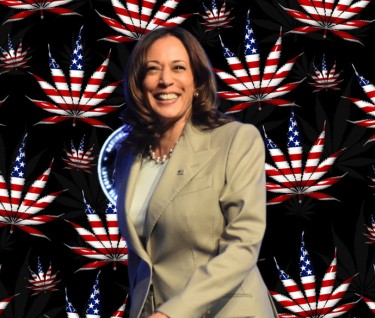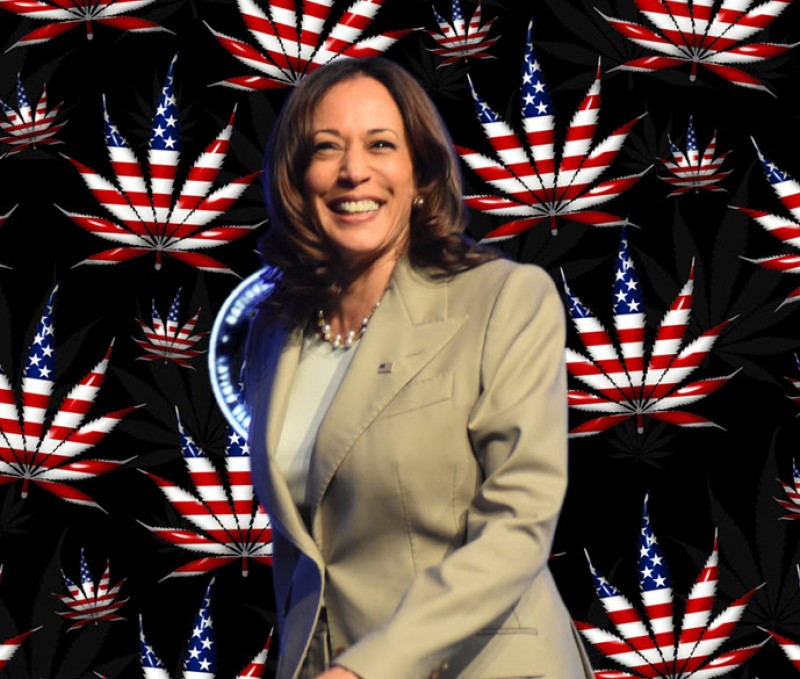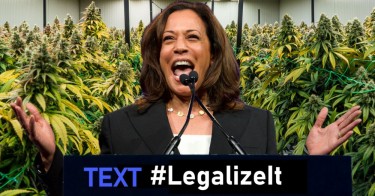
Kamala Harris, the Vice President of the United States and a Democratic presidential candidate, has recently rolled out an ambitious policy initiative aimed specifically at uplifting Black men. Titled the "Opportunity Agenda for Black Men," this plan tackles critical challenges in economic opportunity, health equity, and criminal justice reform, particularly regarding cannabis legalization. With the 2024 election fast approaching, Harris's proposals are designed not only to rally support among Black male voters but also to create lasting change in our society.
Context and Importance
Harris's announcement comes at a pivotal moment when support from Black male voters appears to be dwindling a crucial demographic for the Democratic Party. Recent polls show that over 25% of young Black men are considering backing Donald Trump in the upcoming election. This is a notable shift from the approximately 80% who supported Joe Biden in 2020. Such a trend has raised concerns within the Democratic Party, prompting Harris to take meaningful steps to reconnect with this vital voter base.
Important Context Points:
-
Declining Support: More than 25% of young Black men may lean toward Trump.
-
Historical Support: Roughly 80% of Black voters were behind Biden in 2020.
-
Urgent Need for Engagement: Targeted outreach is crucial for rebuilding trust and support.
Harris's plan is comprehensive, addressing economic disparities, health issues, and the long-lasting effects of cannabis prohibition that have disproportionately impacted Black communities. By focusing on these areas, she aims to not only regain support but also lay a foundation for a more equitable society.
Economic Opportunities
-
Forgivable Small Business Loans
One of the cornerstone proposals of Harris’s agenda is the introduction of forgivable small business loans for aspiring Black entrepreneurs. The plan promises to provide up to 1 million loans, each potentially worth $20,000, which can be fully forgiven if certain criteria are met. This initiative is designed to bridge the capital gap that often hinders Black entrepreneurs from starting and sustaining their businesses.
The loans will be administered through partnerships with community banks and organizations that have a proven track record of serving underserved communities. This approach not only ensures that funds reach those who need them most but also fosters local economic growth by empowering individuals to create jobs and stimulate their local economies.
-
Access to Cryptocurrency
In addition to traditional business funding, Harris’s plan includes measures to enhance access to the cryptocurrency industry for Black Americans. With over 20% of Black Americans reportedly owning or having owned cryptocurrency, Harris recognizes the potential of digital assets as a means of wealth accumulation. Her proposals aim to create a regulatory environment that protects investors while encouraging participation in this rapidly evolving market.
By promoting financial literacy and providing resources for safe investment practices, Harris hopes to equip Black men with the tools they need to thrive in an increasingly digital economy. This focus on cryptocurrency reflects a broader trend toward embracing innovative financial solutions that can help marginalized communities build wealth.
-
Apprenticeships and Mentorship Programs
Recognizing that education and training are critical components of economic empowerment, Harris’s agenda also emphasizes the importance of apprenticeship and mentorship programs. These initiatives aim to connect young Black men with experienced professionals in various fields, providing them with valuable skills and networking opportunities.
By fostering relationships between established professionals and aspiring entrepreneurs or workers, these programs can help break down barriers to entry in competitive job markets. Additionally, they can promote diversity within industries that have historically lacked representation from Black individuals.
Health Equity Initiatives
-
Addressing Health Disparities
Harris's policy plan also places a strong emphasis on health equity, particularly concerning diseases that disproportionately affect Black men. The initiative proposes a national health equity initiative focused on conditions such as sickle cell disease, diabetes, and prostate cancer.By enhancing preventive care services and increasing access to screenings and treatments for these conditions, Harris aims to improve overall health outcomes within this community. The plan includes funding for research into these diseases and efforts to ensure that healthcare providers are culturally competent and sensitive to the unique needs of Black patients.
-
Mental Health Support
In addition to physical health initiatives, Harris's agenda recognizes the importance of mental health support for Black men. The stigma surrounding mental health issues can be particularly pronounced in some communities, leading many individuals to avoid seeking help. To combat this stigma, Harris proposes increasing funding for mental health programs tailored specifically for Black men. These programs would focus on providing accessible resources and creating safe spaces for open discussions about mental health challenges.
Cannabis Legalization
Legalizing Recreational Marijuana
A significant aspect of Harris's policy plan is her commitment to legalizing recreational marijuana at the federal level. This proposal is particularly relevant given the historical context of cannabis prohibition and its disproportionate impact on Black communities. For decades, Black individuals have been arrested at significantly higher rates than their white counterparts for marijuana-related offenses, despite similar usage rates across demographics. By legalizing cannabis and expunging past convictions related to non-violent marijuana offenses, Harris aims to rectify some of these injustices.
Economic Participation in Cannabis Industry
Moreover, Harris’s plan seeks to ensure that Black men have equitable opportunities within the newly legalized cannabis industry. This includes provisions for training programs aimed at preparing individuals for careers in cannabis cultivation, distribution, and retail.
By promoting entrepreneurship within this sector, Harris hopes to transform cannabis legalization from a punitive measure into an economic opportunity for those who have been historically marginalized by drug policies.
Outreach Strategies
-
Engaging Black Male Voters
To effectively implement her policy agenda and regain support from Black male voters, Harris’s campaign has devised several outreach strategies. These include organizing gender-specific gatherings, such as “Black Men Huddle Up” events featuring local celebrities and community leaders. These events aim to create an inclusive environment where participants can discuss issues affecting their lives while fostering a sense of community.
Additionally, Harris plans to launch testimonial ads featuring local Black male voices in battleground states. By highlighting relatable experiences and success stories from within the community, these ads aim to resonate with potential voters on a personal level.
-
Collaborations with Influential Figures
Harris’s outreach efforts also extend beyond traditional campaign strategies; she has sought collaborations with influential figures within the Black community. For instance, she is set to appear on popular media platforms frequented by younger audiences such as interviews with prominent radio hosts to directly address concerns and share her vision for empowering Black men.
These engagements are crucial as they provide an opportunity for Harris to connect with voters who may feel disillusioned or disengaged from the political process.
Key Takeaways from Kamala Harris’s Agenda:
1. Introduction of forgivable small business loans (up to $20K).
2. Enhanced access to cryptocurrency investments.
3. Development of apprenticeship and mentorship programs.
4. National health equity initiative targeting specific diseases affecting Black men.
5. Increased funding for mental health support tailored specifically for this demographic.
6. Commitment to legalizing recreational marijuana at the federal level.
7. Expungement of past marijuana-related convictions.
8. Training programs aimed at preparing individuals for careers in cannabis cultivation and distribution.
9. Gender-specific outreach events like "Black Men Huddle Up."
10. Collaborations with influential figures within the community through media engagements.
As Election Day approaches, it remains crucial for voters especially those within this targeted demographic to critically assess how these proposals align with their needs while considering their implications for broader societal change. The success of this agenda will ultimately depend on its implementation and whether it translates into tangible improvements in the lives of those it aims to serve.
Conclusion
Kamala Harris’s “Opportunity Agenda for Black Men” represents a significant step toward addressing systemic inequalities faced by this demographic. By focusing on economic empowerment through forgivable loans and access to emerging industries like cryptocurrency and cannabis, as well as prioritizing health equity initiatives tailored specifically for Black men, Harris aims not only to galvanize support ahead of the 2024 election but also to foster long-term change.
As she navigates a challenging political landscape marked by declining support among key voter segments, her proposals reflect an understanding of the unique challenges faced by Black men in America today. Through targeted outreach efforts and comprehensive policy initiatives, Kamala Harris seeks not only to win votes but also to create lasting opportunities for empowerment within historically marginalized communities.
As Election Day approaches, it remains crucial for voters especially those within the targeted demographic to critically assess how these proposals align with their needs and aspirations while considering their implications for broader societal change. The success of this agenda will ultimately depend on its implementation and whether it translates into tangible improvements in the lives of those it aims to serve.
KAMALA SAYS SHE WANTS TO LEGALIZED WEED DURING A PODCAST, READ ON...
HARRIS SAYS WE NEED TO LEGALIZE WEED ON PODCAST, CLICK HERE!






